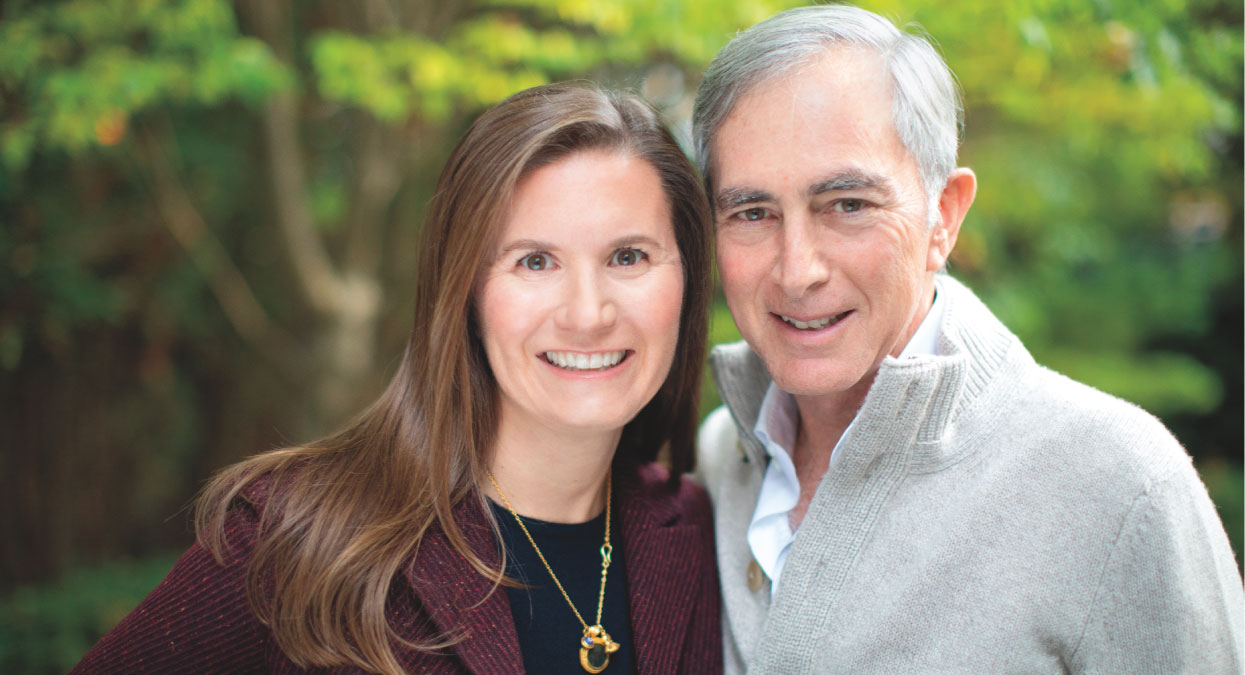
Bresler and Donohue fuel new frontier of Parkinson’s research
“If you’re thinking about making a gift toward medical research, give double. Philanthropy gives a person the ability and power to be part of something that can make a difference.”
—RON BRESLER
After he was diagnosed with Parkinson’s disease, Ron Bresler and his wife, Erin Donohue, began to support medical research at institutions across North America that may someday yield new treatments for the incurable neurodegenerative condition.
“We were looking for hope and want to help find a cure,” says Bresler.
The Canadian-based couple found a beacon of hope in Jie Shen, PhD, a professor in the Department of Neurology at the Brigham and director of the Brigham’s Morris K. Udall Center of Excellence for Parkinson’s Disease Research—one of only six National Institutes of Health designated centers in the country. Renowned for discovering some of Parkinson’s key molecular drivers, Shen and her colleagues are now poised to develop new therapies that could reverse the disease process. To help accelerate this effort, Bresler and Donohue recently gave $1 million to the Brigham, building on their significant contribution to Shen’s work in 2016.
“Dr. Shen stands out as one of the humblest people we’ve ever met and one of the smartest,” explains Donohue. “We believe in what she and the Brigham are doing—not just for us, but for the field.”
The couple’s gift will support the development of gene therapy techniques to deliver normal copies of beneficial genes to the part of the brain where dopamine neurons have been lost, reversing the harmful dopamine neuron depletion associated with Parkinson’s.
“Thanks to Ron and Erin’s generosity, we are closer to bringing life-changing treatment to patients,” Shen explains. “I’m grateful for their belief in our work and for helping us move our research in this crucial new direction.”
Bresler and Donohue remain passionate about philanthropy’s ability to help change the course of Parkinson’s and neurodegenerative diseases more broadly.
“If you’re thinking about making a gift toward medical research, give double,” Bresler says. “COVID-19 has created a lot of challenges for everybody globally and has changed the focus of giving. But disease is not taking a holiday. Research is not taking a holiday. Philanthropy gives a person the ability and power to be part of something that can make a difference.”